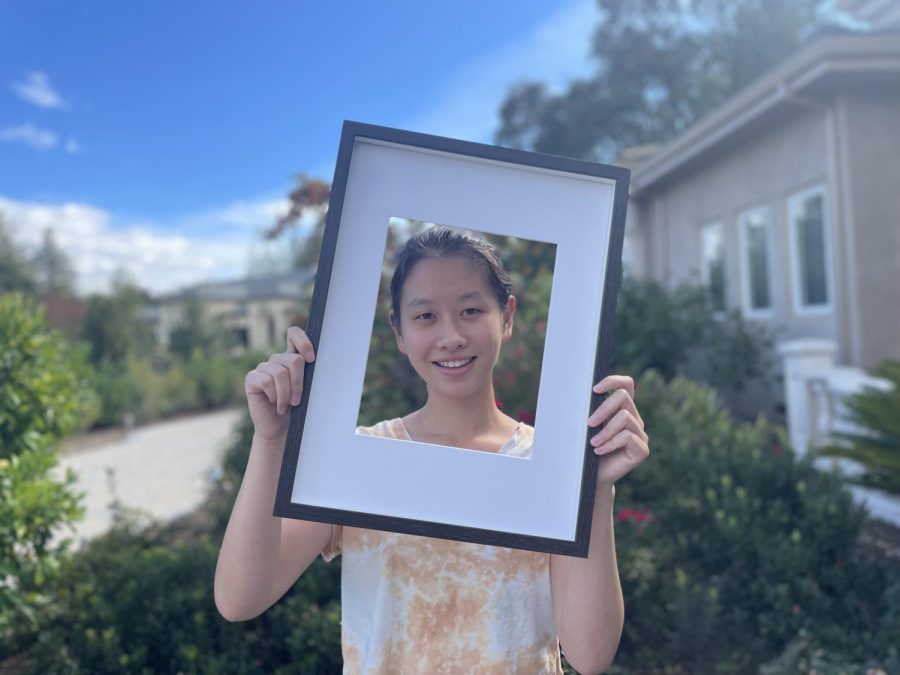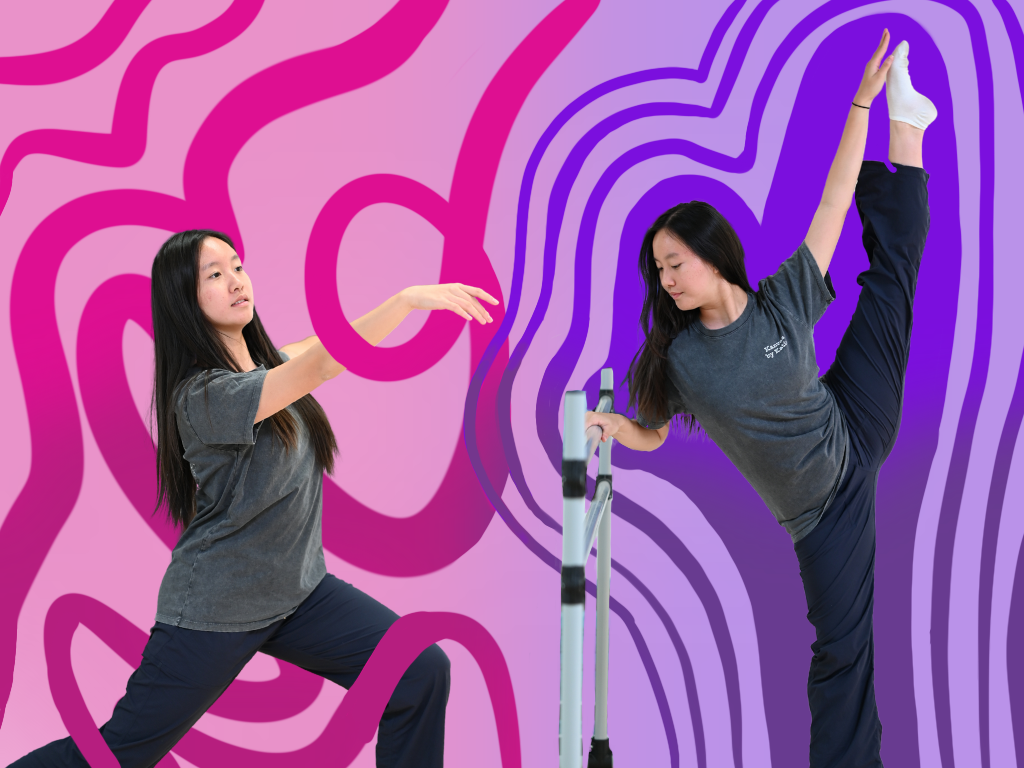This I Believe: The right decision for myself
Playing the cello became a chore, rather than a luxury. While practicing, I could feel my hope disappearing as I counted the number of minutes I played.
November 4, 2021
My fingers fly across the cello’s four strings, my mind focuses on maintaining the tempo as I sit in the soft black chair in my room. A music stand with black and white pages of notes stares back at me, yet I try to play from memory. The beautiful melody, made just through four strings and a thin, delicate bow, sings from my cello and blends into Haydn’s Cello Concerto No 1 in C major, my favorite piece so far.
I started playing cello in fifth grade, after becoming entranced by the instrument while watching performances of my older brother’s orchestra. To me, the cello seemed grander than the violin and more particular than the piano, with a deep tone and profound resonance. I begged my mother to let me switch from the piano to the cello, believing that my love for the cello was boundless.
A rented cello soon became mine. Classes took place every week. I flipped through dozens of pages of scales and tunes. With every new melody and lesson, my fingers grew more flexible and my vibrato became smoother. While my sister attended her piano lessons, I practiced cello at home in my room, sitting on my chair with my back straight and head high.
I came home from school and practiced the cello before starting any homework, using the instrument to relax my brain. Stress flowed out of me, into the notes and through the strings; even 15 minutes of playing the cello could change my entire mood. But seemingly out of nowhere, as my work load from school and extracurriculars increased, I started to view cello as a burden that I didn’t have time to complete. By the end of eighth grade, even 15 minutes of playing the cello would turn my mood negative and increase my anxiety.
I used to play to relax, but now I would play only to amass more stress. I would play only for my frustration to heighten and then want to stop. Dread rushed through my mind every Wednesday night before lessons after realizing I hadn’t met the expectations of my teacher that week. Sometimes, I convinced my mom to let me skip, but that only pushed the problem back a week.
Playing the cello became a chore, rather than a luxury. The notes I played sounded off-pitch, my vibrato jagged, the bow stiff. Each new wrong note flushed anger through the hairs of my bow and up my arm and into my head. While practicing, I could feel my hope disappearing as I counted the number of minutes I played.
With this mindset, I knew I couldn’t get anything done. With the current state of how I felt about the cello, my skills would only deteriorate, and my anxiety would only grow by the day. These changes in my attitude made me realize that continuing to play the cello wasn’t the right decision for me. While playing the cello might have been my paradise just three years ago, it certainly wasn’t anymore.
I took the step to speak to my mom about the cello’s impact on my mental health. She had already seen my dread and constant frustration during practices, and saw the toll it had taken on me. We both agreed that I should step away from playing the cello at least temporarily and focus on other aspects of my life such as building better relations with my friends and accumulating my jigsaw puzzle collection that would improve my attitude.
In the first few weeks and months after stopping cello practices, I felt my energy become brighter and more relaxed. I didn’t stress about any more weekly lessons or procrastinate playing the instrument when I arrived home from school. And although I always smile when I watch old videos of myself playing the cello in concerts, and become captivated by the music other cellists produce, I myself never went back to the cello.
And although I lost that aspect of myself, I gained a happier and more positive lifestyle. Each decision has its pros and its cons, and from this experience, I learned to weigh them and determine what would be best for myself and my mental health. Though deciding to stop the cello was a hard choice for me, it was also the right decision that I’m glad I made.


















![“[Building nerf blasters] became this outlet of creativity for me that hasn't been matched by anything else. The process [of] making a build complete to your desire is such a painstakingly difficult process, but I've had to learn from [the skills needed from] soldering to proper painting. There's so many different options for everything, if you think about it, it exists. The best part is [that] if it doesn't exist, you can build it yourself," Ishaan Parate said.](https://harkeraquila.com/wp-content/uploads/2022/08/DSC_8149-900x604.jpg)




![“When I came into high school, I was ready to be a follower. But DECA was a game changer for me. It helped me overcome my fear of public speaking, and it's played such a major role in who I've become today. To be able to successfully lead a chapter of 150 students, an officer team and be one of the upperclassmen I once really admired is something I'm [really] proud of,” Anvitha Tummala ('21) said.](https://harkeraquila.com/wp-content/uploads/2021/07/Screen-Shot-2021-07-25-at-9.50.05-AM-900x594.png)







![“I think getting up in the morning and having a sense of purpose [is exciting]. I think without a certain amount of drive, life is kind of obsolete and mundane, and I think having that every single day is what makes each day unique and kind of makes life exciting,” Neymika Jain (12) said.](https://harkeraquila.com/wp-content/uploads/2017/06/Screen-Shot-2017-06-03-at-4.54.16-PM.png)








![“My slogan is ‘slow feet, don’t eat, and I’m hungry.’ You need to run fast to get where you are–you aren't going to get those championships if you aren't fast,” Angel Cervantes (12) said. “I want to do well in school on my tests and in track and win championships for my team. I live by that, [and] I can do that anywhere: in the classroom or on the field.”](https://harkeraquila.com/wp-content/uploads/2018/06/DSC5146-900x601.jpg)
![“[Volleyball has] taught me how to fall correctly, and another thing it taught is that you don’t have to be the best at something to be good at it. If you just hit the ball in a smart way, then it still scores points and you’re good at it. You could be a background player and still make a much bigger impact on the team than you would think,” Anya Gert (’20) said.](https://harkeraquila.com/wp-content/uploads/2020/06/AnnaGert_JinTuan_HoHPhotoEdited-600x900.jpeg)

![“I'm not nearly there yet, but [my confidence has] definitely been getting better since I was pretty shy and timid coming into Harker my freshman year. I know that there's a lot of people that are really confident in what they do, and I really admire them. Everyone's so driven and that has really pushed me to kind of try to find my own place in high school and be more confident,” Alyssa Huang (’20) said.](https://harkeraquila.com/wp-content/uploads/2020/06/AlyssaHuang_EmilyChen_HoHPhoto-900x749.jpeg)











